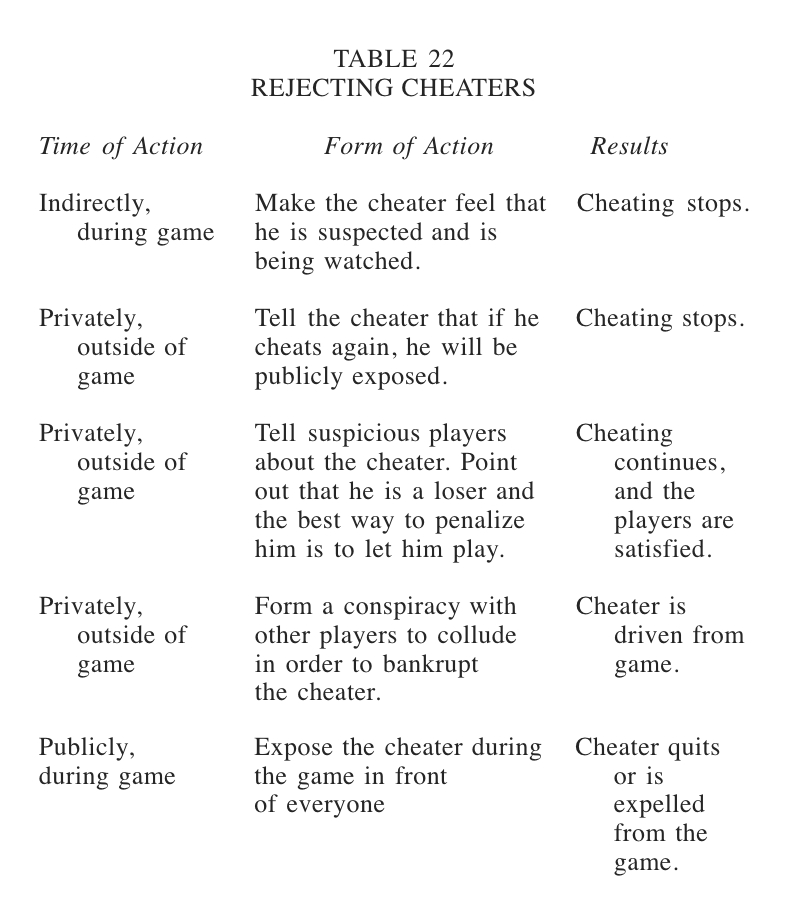Rejecting Cheaters
3. Rejecting Cheaters
Under certain conditions, cheating by others can financially hurt the good player. For example, valuable losers might quit the game if they detected cheating. Or the game itself could be destroyed by cheating. If necessary, therefore, the good player can eliminate the cheater or his cheating in one or more of the ways shown in Table 22.

The best action against a cheater depends not only on the situation, but on the attitudes of the other players as well. If a cheater must be eliminated, the good player assumes a righteous hero’s role by exposing the “nefarious cheater.” That righteous role enhances the good player’s image of being the most honest and trustworthy player in the game— an ideal image for manipulating opponents.
What about stealing money from the pot? If the good player does not win the pot, he keeps quiet when losers shortchange the pot or fail to pay their lights (money owed to the pot). But if chronic stealing upsets other players enough to hurt the game, the good player stops the stealing by taking one of the actions listed in Table 22.
Scotty Nichols barely beats Ted Fehr to win a $900 pot. While everyone’s attention is focused on the action, Sid Bennett casually takes the $100 that he was light and slips it into his shirt pocket for a quick $200 profit. John notices Sid’s theft, but says nothing. With saliva drooling over his lip, Scotty rakes in the huge pot; his breathing quickens as his fingers sort the money… he forgets about Sid’s lights. Since Sid is a big loser and Scotty a big winner for the night, the theft has an equalizing effect that benefits John.
Several hands later, Sid pulls the same trick by pocketing his $40 lights for an $80 profit. John wins the pot and says nothing. As the next hand is dealt, he quietly gives Sid $20 and says, “You owe me another hundred.”… Sid blushes and then nods in agreement.